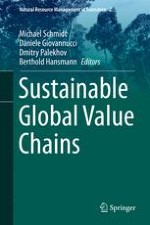2019 | OriginalPaper | Buchkapitel
3. The Grand Vision of G7 in Elmau: Quo Vadis, Sustainability?
verfasst von : Katharina Serrano
Erschienen in: Sustainable Global Value Chains
Verlag: Springer International Publishing
Aktivieren Sie unsere intelligente Suche, um passende Fachinhalte oder Patente zu finden.
Wählen Sie Textabschnitte aus um mit Künstlicher Intelligenz passenden Patente zu finden. powered by
Markieren Sie Textabschnitte, um KI-gestützt weitere passende Inhalte zu finden. powered by
